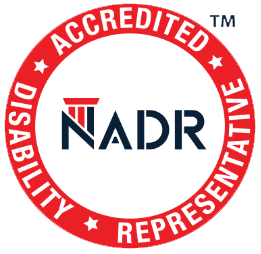Understanding the Blue Book: How the SSA Evaluates Medical Conditions for Disability Benefits
Navigating the complexities of disability benefits can be daunting, especially when it comes to understanding the assessment of medical conditions. The Blue Book is a critical tool the Social Security Administration (SSA) uses in this process. Officially known as the Disability Evaluation Under Social Security, the Blue Book is a comprehensive guide that outlines the criteria for evaluating whether individuals qualify for Social Security Disability Insurance (SSDI) or Supplemental Security Income (SSI) based on their medical conditions.
How Does the Blue Book Work?
The Blue Book is a medical guide SSA uses to determine if an individual’s disability condition is severe enough to qualify for disability benefits. It has two parts: Adult Listings (Part A) and Childhood Listings (Part B). Each part has listings for major body systems, encompassing various medical conditions affecting one’s ability to work or perform daily activities.
How Are Conditions Listed?
Each listing in the Blue Book includes:
- Specific Criteria: For a medical condition to meet or equal a listing, it must satisfy particular criteria, including clinical findings, symptoms, and the results of medical tests.
- Severity of the Condition: The criteria details the severity of the medical condition or impairment.
- Duration: Most conditions must also meet a duration requirement, showing that they will last for a period of at least 12 months.
Examples of Conditions Covered
The Blue Book covers a vast array of conditions including, but not limited to:
- Musculoskeletal problems such as back injuries.
- Cardiovascular conditions, including heart failure or coronary artery disease.
- Senses and speech issues, like vision and hearing loss.
- Respiratory illnesses such as COPD or asthma.
- Neurological disorders such as multiple sclerosis, cerebral palsy, PaParkinson’sisease, and epilepsy.
- Mental disorders like depression, anxiety, schizophrenia, autism, or intellectual disability.
- Immune system disorders such as HIV/AIDS, lupus, and rheumatoid arthritis.
The Evaluation Process
When applying for disability benefits, the applicant’s medical condition is evaluated against the Blue Book listings. If the condition is found in the listings and meets the specified criteria, the SSA can rule that the individual is disabled.
Suppose the condition is not in the Book or does not meet the requirements. In that case, the evaluation shifts to determining whether the condition affects the applicant’s ability to perform work they were previously able to do.
If it is determined that the claimant can not do their past work then the SSA looks to see if they can do any other type of work. This evaluation considers the person’s age, education, past work experience, and transferable skills. This is step five of a sequential evaluation:
- If the claimant person is working, determine if the work is SGA.
- Assess the severity of the medical condition.
- Check if the condition meets or equals a listing in the Blue Book.
- Evaluate the ability to perform past relevant work.
- Consider the ability to adjust to other work.
Updates and Revisions
The SSA updates the Blue Book to reflect advances in medical knowledge, the introduction of new treatments, and other considerations. These updates help to ensure that the criteria remain current with the medical community’s understanding of disabling conditions.
Empowering Lives Through Support and Advocacy
The Blue Book is an essential resource for both applicants and professionals involved in the disability benefits process. Understanding its structure and the criteria for evaluating medical conditions can significantly demystify applying for disability benefits. For those looking to use the Blue Book, it can provide invaluable insight into what information and documentation will be necessary to support their case for benefits.
Navigating the Blue Book and the application process can be challenging. Still, with the proper knowledge and resources, individuals can more effectively manage their applications and increase their chances of obtaining the necessary support.
If you need help with your application or appeal, we can help. At Disability Support Services (DSS), we specialize in getting our clients the benefits they deserve. Fill out our free online evaluation form or call us today.



